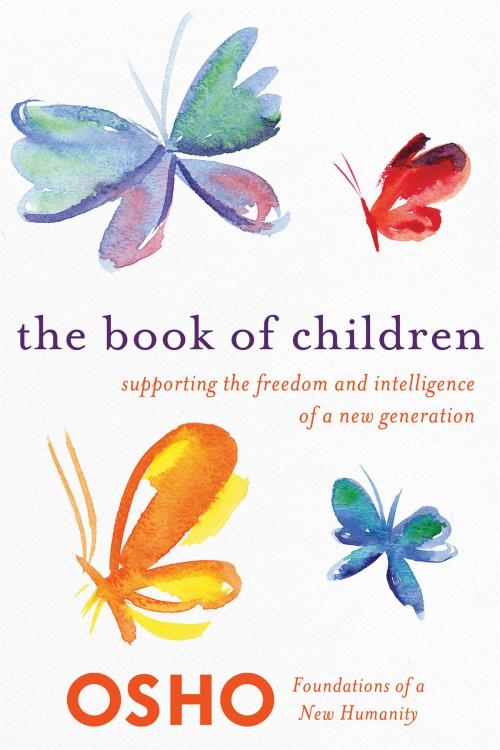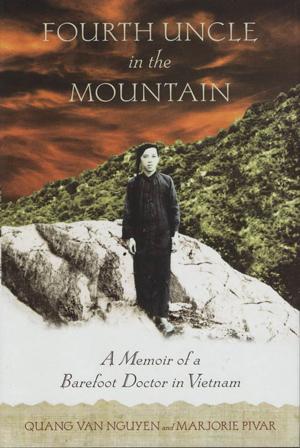The Book of Children
Supporting the Freedom and Intelligence of a New Generation
Nonfiction, Religion & Spirituality, Occult, Spiritualism, Family & Relationships, Parenting, New Age| Author: | Osho | ISBN: | 9781250031587 |
| Publisher: | St. Martin's Press | Publication: | July 16, 2013 |
| Imprint: | St. Martin's Griffin | Language: | English |
| Author: | Osho |
| ISBN: | 9781250031587 |
| Publisher: | St. Martin's Press |
| Publication: | July 16, 2013 |
| Imprint: | St. Martin's Griffin |
| Language: | English |
In The Book of Children: Supporting the Freedom and Intelligence of a New Generation, one of the twentieth century’s greatest spiritual teachers shares how parents can develop positive and encouraging relationships with their kids.
“Look into the eyes of a child—you cannot find anything deeper. The eyes of a child are an abyss, there is no bottom to them.”—Osho
Children have an authentic freedom. They are joyful, playful, and naturally creative. But by the time they grow up, most children have been sacrificed to the gods of “productivity” and good behavior to the extent that only nostalgia for childhood remains.
Osho says, “It is the child’s experience that haunts intelligent people their whole life. They want it again—the same innocence, the same wonder, the same beauty.” And while each adult generation may vow, with the best of intentions, not to repeat the mistakes of the past, they inevitably find themselves imposing their own inherited limitations on new generations to come.
This book calls for a “children’s liberation movement” to break through old patterns and create opportunities for an entirely new way of relating as human beings. It is a guide for grown-ups to become aware of their own conditioning as they relate to the children in their lives. And, with that awareness, to learn when to nurture and protect and when to get out of the way, so that children can flower into their highest potential and greatest capacity for joy.
Osho challenges readers to examine and break free of the conditioned belief systems and prejudices that limit their capacity to enjoy life in all its richness. He has been described by the Sunday Times of London as one of the “1000 Makers of the 20th Century” and by Sunday Mid-Day (India) as one of the ten people—along with Gandhi, Nehru, and Buddha—who have changed the destiny of India. Since his death in 1990, the influence of his teachings continues to expand, reaching seekers of all ages in virtually every country of the world.
In The Book of Children: Supporting the Freedom and Intelligence of a New Generation, one of the twentieth century’s greatest spiritual teachers shares how parents can develop positive and encouraging relationships with their kids.
“Look into the eyes of a child—you cannot find anything deeper. The eyes of a child are an abyss, there is no bottom to them.”—Osho
Children have an authentic freedom. They are joyful, playful, and naturally creative. But by the time they grow up, most children have been sacrificed to the gods of “productivity” and good behavior to the extent that only nostalgia for childhood remains.
Osho says, “It is the child’s experience that haunts intelligent people their whole life. They want it again—the same innocence, the same wonder, the same beauty.” And while each adult generation may vow, with the best of intentions, not to repeat the mistakes of the past, they inevitably find themselves imposing their own inherited limitations on new generations to come.
This book calls for a “children’s liberation movement” to break through old patterns and create opportunities for an entirely new way of relating as human beings. It is a guide for grown-ups to become aware of their own conditioning as they relate to the children in their lives. And, with that awareness, to learn when to nurture and protect and when to get out of the way, so that children can flower into their highest potential and greatest capacity for joy.
Osho challenges readers to examine and break free of the conditioned belief systems and prejudices that limit their capacity to enjoy life in all its richness. He has been described by the Sunday Times of London as one of the “1000 Makers of the 20th Century” and by Sunday Mid-Day (India) as one of the ten people—along with Gandhi, Nehru, and Buddha—who have changed the destiny of India. Since his death in 1990, the influence of his teachings continues to expand, reaching seekers of all ages in virtually every country of the world.















